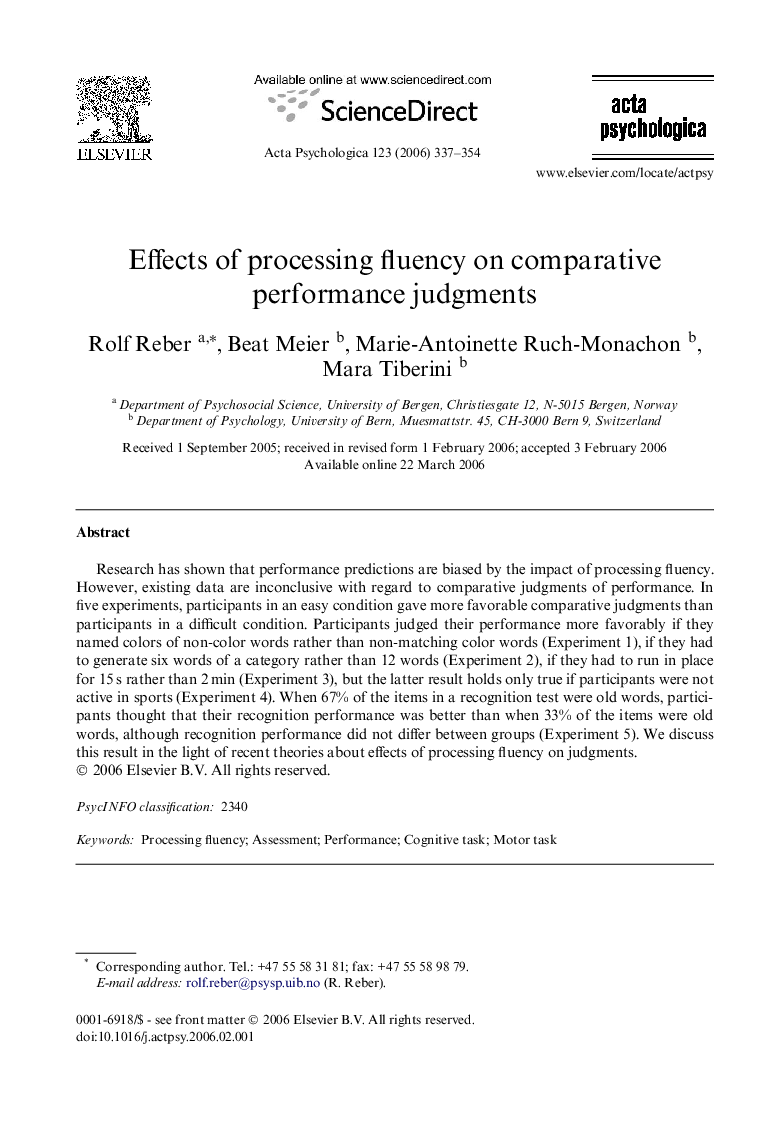| Article ID | Journal | Published Year | Pages | File Type |
|---|---|---|---|---|
| 920664 | Acta Psychologica | 2006 | 18 Pages |
Research has shown that performance predictions are biased by the impact of processing fluency. However, existing data are inconclusive with regard to comparative judgments of performance. In five experiments, participants in an easy condition gave more favorable comparative judgments than participants in a difficult condition. Participants judged their performance more favorably if they named colors of non-color words rather than non-matching color words (Experiment 1), if they had to generate six words of a category rather than 12 words (Experiment 2), if they had to run in place for 15 s rather than 2 min (Experiment 3), but the latter result holds only true if participants were not active in sports (Experiment 4). When 67% of the items in a recognition test were old words, participants thought that their recognition performance was better than when 33% of the items were old words, although recognition performance did not differ between groups (Experiment 5). We discuss this result in the light of recent theories about effects of processing fluency on judgments.
